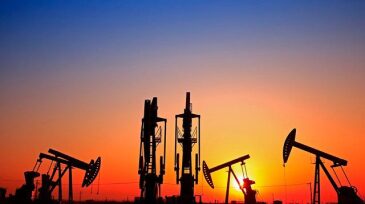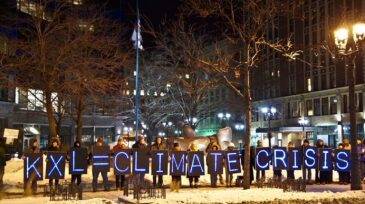Environment
The Norwegian Ministry of Energy has approved the Phase 2 expansion, which is expected to increase carbon dioxide storage capacity from 1.5 million tonnes to 5 million tonnes.
DNV’s carbon capture and storage outlook forecasts a massive shortfall in the projects necessary to help the world reach net-zero emissions by 2050.
Buoy-based camera footage, analyzed by artificial intelligence, can help reduce the risk of birds colliding with offshore wind farm turbines.
-
The New Owner Clean Air Act Audit Program, tailored specifically for oil and natural gas producers, will focus on offering more flexibility to new company owners who choose to self-audit their emissions and report any failures to meet EPA’s regulations.
-
While much progress has been made to reduce flaring, associated gas continues to be flared at thousands of oil production sites around the world. A further reduction may be achieved through a market-oriented approach to commercialization
-
Sami Alnuaim, 2019 SPE president, welcomed the addition of two new oil and gas sustainability initiatives at the University of Houston and highlighted a number of ways the industry is already acting as a good global steward.
-
Researchers combined detailed observations, laboratory experiments, and existing numerical models to develop the Texas A&M Oil Spill Calculator and improve predictions of subsea oil and gas plume dynamics.
-
On 2 January, Syncrude Canada pleaded guilty in the Alberta Court to one count of violating the Migratory Birds Convention Act, 1994, along with several provincial charges.
-
Exxon Mobil sent a letter to the US Environmental Protection Agency in support of methane gas emission rules put in place under the Obama administration, according to a copy of the letter seen by Reuters.
-
The Coast Guard has partially assumed federal control of response operations to contain an oil discharge from the site of the collapsed Mississippi Canyon Block 20 offshore platform 11 miles south of the mouth of the Mississippi River.
-
A year and a half after President Donald Trump reversed an Obama administration decision to block TransCanada’s Keystone XL pipeline, a federal district judge in Montana has halted the project again, citing an insufficient review of the project's environmental impact.
-
The Trump administration is set to reduce the number of federally regulated waterways protected under the US Clean Water Act in a bid to help the energy and agriculture industries, according to a media report.
-
Scientists have discovered nearly two dozen new types of microbes, many of which use hydrocarbons as energy sources. The scientists suggest that these bacteria could help limit the concentrations of greenhouse gases in the atmosphere and could one day be useful for cleaning oil spills.













